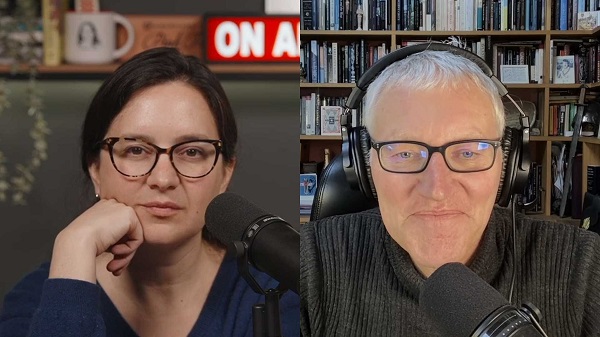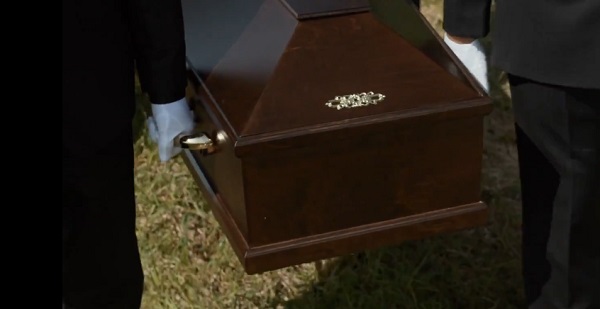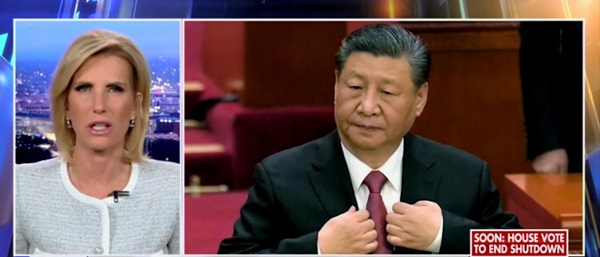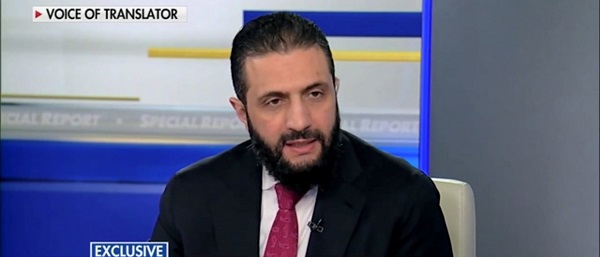Opinion
How Christianity Remade the World

Tom Holland joins Bari Weiss on Honestly (The Free Press)
Interview courtesy of The Free Press
| By Bari Weiss |
This Christmas, one of our greatest living historians explains how one ‘radical message’ came to define the entirety of the Western world.
Is our vacation from religion coming to an end?
Whether you believe in the story of the virgin birth and resurrection, or you believe that those miracles are myths, one thing is beyond dispute: The story of Jesus and the message of Christianity is among the stickiest ideas the world has ever seen.
Within four centuries of Jesus’s death, Christianity had become the official religion of the Roman Empire. It had 30 million followers—which amounted to half the empire. Today, two millennia later, Christianity is still the largest religion in the world, with more than 2 billion adherents.
How did the radical message of Christianity catch on? How did it change the world? And how does it shape all our lives today?
These questions motivate the latest episode of Honestly. My guest is the incredible historian Tom Holland, one of the most gifted storytellers in the world. His podcast, The Rest Is History, is among the most popular out there. Each week, he and his co-host, Dominic Sandbrook, charm their way through history’s most interesting characters and sagas. I can’t recommend it more highly.
I also recommend Tom’s book Dominion: How the Christian Revolution Remade the World. In it, he argues that Christianity is the reason we have America, that it was the inspiration behind our revolution. He also argues that Christianity is the backbone of both “wokeness,” as an ideology, and liberalism, which so often sees itself as secular.
In today’s episode, Tom discusses all this and more, including a question that a lot of my colleagues have thought about this year: Is our vacation from religion coming to an end?
Click below to listen to the podcast, or scroll down for an edited transcript of our conversation. Merry Christmas and happy holidays!
|
|
Tom Holland on How Christianity Remade the World
The Free Press Episode |
On the radical story of Jesus’s death:
Bari Weiss: Your book opens with the crucifixion. Your argument is that the turning point is not Jesus’s birth, but his death, at 33 years old, at the hands of the Roman authorities. Why is this the pivotal moment?
Tom Holland: It is very difficult to overemphasize how completely mad it was for everybody in the ancient world that someone who suffers crucifixion could in any way be the Messiah, let alone part of the one God. In the opinion of the Romans, crucifixion is the fate that should properly be visited on slaves. Not just because it is protracted and agonizing, but also because it is deeply humiliating.
When you die, you will hang there like a lump of meat. This is a demonstration, in the opinion of the Romans, that essentially their might is right. That if a slave rebels against his master, this is what happens.
I think what is radical about what Christians come to believe is not the fact that a man can become a god. Because for most people in the Mediterranean that is a given. What is radical is that the man Christians believe was divine was someone who had ended up suffering the worst fate imaginable—death by crucifixion—which, in the opinion of the Romans, was the fate visited on a slave.
The reason that Jesus suffers that fate is that he is part of a conquered people. He’s not even from Judea. He’s from Galilee. Galilee is not properly under the rule of the Romans. It’s franchised out to a client king. He is the lowest of the low. Even the Judeans look down on him.
The fact that such a person could conceivably be raised up by citizens of the Roman Empire as someone greater than Caesar himself, greater than Augustus, is a completely shocking maneuver. Judeans, Greeks, Romans—it’s shocking to them all.
The radical message of the crucifixion is that, in Christ’s own words, the last shall be first, and the first shall be last.
On the power relationship between the church and state:
BW: I’ve always been so interested in how Christianity goes from being the bane of the powerful to being the faith of the emperor. Constantine, the emperor who could have been a god, instead converts to the faith whose god died on a cross. How does that happen?
TH: Christianity spreads through most of the major cities of the empire. It’s not difficult to see what the appeal is. In a society without any hint of a welfare state, a state in which no value at all is put upon the weak or the poor or the sick, what the church offers is the first functioning welfare state.
If you are a widow or an orphan or in prison or hungry, the likelihood is that you will be able to find relief from the church. And that offers a kind of power because bishop literally means an overseer—the figure of a bishop who has charity to dispense. That’s quite something. You are in a position of authority that even your pagan neighbors might come to respect.
That’s the situation at the beginning of the fourth century, when Constantine is fighting a civil war. What Constantine wants is what Roman emperors for a century have wanted. Everyone in the empire knows that the prosperity of the empire is dependent on the favor of the gods. But there is a problem, which is that most cults are centered on particular temples, particular shrines, particular ways of offering up sacrifice or respect to a god.
Over the course of the third century, the Roman Empire goes through a terrible time—barbarian invasions, galloping inflation. So when Constantine comes to power, he is looking for a religion that can bind everyone within the empire. And this, basically, is what Christianity supplies him with.
What it also does is to suggest that there is a single celestial king in heaven. You can see it’s quite nice to imagine himself as the chosen one of God, because it suits his ego to have a single god for a single emperor.
But it has to be said that it takes Constantine and his heirs a while to realize what they’ve taken on—that the church is a kind of independent entity. And over the course of subsequent Christian history, what the relationship of the church should be to the authority and power of the great is one that is repeatedly being hammered out.
The traditions and ideologies of the Orthodox world and of the Western world are, I think, a consequence of the attempt to try and work out exactly what the balance should be between what you might call church and state.
On Christianity’s many paradoxes:
BW: To join a community not based on the lineage of your family or where you are born, but based on a belief—that still feels so radical to me, even in 2024.
TH: To the Romans, it’s bewildering. They are very puzzled. Who do the Christians think they are? They don’t have a land. They don’t have a mother city. Because they claim a universal identity, to the Romans, it seems they have no identity at all. This is a tension that runs throughout Christianity.
The paradox is the great motor of the Christian story and of Christian history. The idea that a man can be a god, the idea that someone who is dead can come to life, the idea that someone who suffers the death of a slave can be greater than Caesar: These are all paradoxes. And over the course of the 2,000 years of Christianity’s history, it’s unsurprising that these ideas have, in turn, generated further paradoxes, of which I would say—and this is pointed out by people hostile to Christianity—that for a people who claim to have a universal identity, Christians are very fond of fighting one another and denying the name of Christian to one another.
Christianity is a faith that is founded on the conviction that a crucified criminal suffering the death of a slave triumphs over the greatest empire on the face of the planet. That conviction has led to it becoming the most hegemonic explanation for who humans are—what their purpose on the face of the earth is, and where they will go after death—that has ever existed. And that gives it an unbelievable degree of power, and has given kings and emperors and popes power.
That is the supreme paradox of Christian history, a faith that became powerful by virtue of enshrining as its symbol someone utterly powerless. It’s incredible.
On the influence of Christianity on revolutions and modern political movements like wokeness:
BW: One of the things that Dominion does so powerfully is it shows the ways in which things we take for granted were actually Christian ideas. Some are obvious: the ideas of charity or forgiveness or redemption. But you connect even the American Revolution, the French Revolution to Christianity. You talk about how the impulses behind wokeness are fundamentally Christian.
TH: Christianity is inherently subversive of the established order that it’s born into. The Reformation of the eleventh century is followed by the Reformation of the sixteenth century, and that Reformation in turn is followed by the Enlightenment, revolutions, and the great cultural, ethical, moral convulsions that we’re going through at the moment.
You can distinguish certain abiding themes. One of them is the idea that the last shall be first—it’s the humbling of the papacy itself in the sixteenth century. It’s the overthrow of kings and emperors and czars in the American, the French, the Russian Revolution. It’s the toppling of statues in contemporary America, the idea that there is almost an inherent virtue within victimhood. To be oppressed is a source of power. It’s a very radical idea that Christianity weaponizes and has weaponized again and again and again.
I would go so far as to say that there are very few aspects of the culture wars that are being fought in America at the moment that do not ultimately have their origins in Christian theology. Like the trans issue. On one level, you would say that the idea that a man can become a woman or woman become a man, is radically opposed to Christian teaching. God creates man and woman separately in Genesis, and there really is no kind of sanction for thinking anything else. But at the same time, the case for trans rights as pushed by those who campaign for them is invariably done in very Christian terms. Trans people are defined as the last. And that seems to impose a kind of instinctive assumption that the last should become the first.
Martin Luther King Jr. described himself as an extremist for Jesus. His language, his speeches, his activism was saturated in biblical imagery. And essentially what he was doing was reminding Americans that if there is no Greek or Jew in Christ, then obviously there is no black or white. And he was summoning white American Christians to a reminder of their shared inheritance.
But over the course of the 1960s, there were other people, other groups of people who historically were disadvantaged, who drew on that lesson—whether feminists or gay-rights campaigners. You have a splintering between those who remain doctrinally Christian and those who are drawing on that Christian inheritance, but feel that they are opposing Christian doctrine and therefore increasingly become hostile to Christianity itself. The fact is they are indebted to the Christian inheritance. But because they have cut themselves off from the Scripture, the theology, the liturgy, and the patterns of behavior that had always defined Christians, they are kind of drifting off in all kinds of radical new ways.
But I think that there is one major theological maneuver that happens over the course of the ’60s, which is that sense that the Latin Christian doctrine of original sin is something to be profoundly rejected. The notion that human beings are born good and that they’re kind of corrupted by capitalism or whatever is very, very powerful in the ’60s. And so it seems liberating and progressive to get rid of the idea that we’re all born as sinners.
The problem with that is that if you get rid of the doctrine of original sin, then what you bake in is that it’s within our own capabilities to be good, to be a good person, and therefore you might persuade yourself that you are free of sin. By abolishing the concept of original sin, it encourages progressives to sit, in a more self-confident way, in moral judgment of those they oppose, than they might otherwise have done.
On why Tom returned to Christianity:
BW: You became secular as a teen and then you returned to Christianity. What brought you back to it?
TH: I exist in the kind of shadowlands between belief and agnosticism. And what brought me back from being an atheist apostate was that I found it boring ultimately. I found the process of reading the great Christian thinkers, reflecting on the patterns of Christian history, and recognizing that this is where I came from—they kind of gelled with me in a way that nothing else would.
There are times where I might be out in the wilderness and I have a sense of the closeness of animals and water and the sky. And I can imagine what it must have been like to exist in the Neolithic era. But I can’t go back to that, obviously. But I can go back to Christianity, because that’s the faith in which I was raised. And I think because of that, I am more open, perhaps, to its beauties as well as to its cruelties.
I feel that in trying to make sense of it, I’m trying to make sense of myself and the kind of conflicted nature that I sense exists within me and within the society that I live in. Ultimately, it makes my life more interesting to be a part of that, to share in that and to contemplate the possibility that it might be true.
BW: What does Christmas mean to you?
TH: The times of the year where I feel most Christian and I feel that I can believe most easily are Christmas and Easter, because these are the two great festivals of the Church. I respond to the inherent beauty and drama of the story. To live in England in December is to live in darkness a lot of the time, and so the idea of light in the darkness is very vivid for me.

International
Bondi and Patel deliver explosive “Clinton Corruption Files” to Congress

A new set of explosive documents dubbed the “Clinton Corruption Files” has been delivered to Congress, shedding fresh light on long-standing allegations that Bill and Hillary Clinton’s family foundation served as a vehicle for influence-peddling during their years in public office. The evidence, produced by Attorney General Pam Bondi and FBI Director Kash Patel, reportedly details how foreign and domestic interests funneled donations to the Clinton Foundation in pursuit of political favor—some while Hillary Clinton was serving as Secretary of State.
According to officials who spoke with Just the News, the documents were transmitted to the Senate Judiciary Committee in recent days and outline multiple instances of donors—including foreign nationals and even a U.S. defense contractor—seeking access or advantage by contributing to the Clinton charity. The revelations raise new questions about why such evidence was allegedly withheld from federal prosecutors who, nearly a decade ago, were probing the foundation for potential “pay-to-play” corruption.
Whistleblowers cited in the materials claim that key evidence was suppressed during a 2015 investigation conducted by the U.S. Attorney’s Office in Little Rock, Arkansas—an inquiry reportedly shut down under the Obama administration’s Department of Justice. “The documents will make clear that there was an effort ‘to obstruct legitimate inquiries into the Foundation by blocking real investigation by line-level FBI agents and DOJ field prosecutors and keeping them from following the money,’” one official directly familiar with the files said.
Bondi and Patel, who have been gathering evidence for weeks, are working to protect whistleblower identities before making the cache public—potentially by the end of this week. The materials are expected to reignite scrutiny over the Obama-era decision to terminate the earlier investigations.
Officials also disclosed that the Clinton documents coincide with a separate batch of records expected to emerge from the ongoing Arctic Frost investigation led by Special Counsel Jack Smith. Those materials reportedly include new information about Smith’s communications with senior officials such as current FBI Director Christopher Wray and details of efforts to obtain private phone records from members of Congress.
The forthcoming disclosures could deepen concerns about politically motivated interference within the Justice Department during the Obama years—and reignite calls for accountability over what many see as one of Washington’s most notorious episodes of selective justice.
International
Is America drifting toward civil war? Joe Rogan thinks so

Podcast host Joe Rogan used Tuesday’s episode of The Joe Rogan Experience to deliver one of his bluntest warnings yet about the state of the country, saying the left-wing celebration that erupted online after the assassination of Turning Point USA founder Charlie Kirk shows America drifting toward something far more dangerous than partisan division.
Rogan told guest Brian Redban that watching ordinary people cheer Kirk’s killing — a murder that unfolded in front of Kirk’s wife and child — revealed a level of moral decay he didn’t think possible in the United States. “Charlie Kirk gets shot and people are celebrating, like, whoa… You want people to die that you disagree with?” he said, recounting the avalanche of social media posts he saw in the aftermath. Rogan admitted he once believed the country was at a four or five “on the scale of one to civil war,” but after witnessing the reaction, he now puts it closer to “seven,” calling it “step seven on the way to a bonafide civil war.”
🚨NEW: Joe Rogan says *CELEBRATION* of Charlie Kirk Assassination shows US well on way to "CIVIL WAR"🚨
"You want people to die that you disagree with?"
"Where are we right now on the scale of 1 to civil war? … I thought we were … 4 or 5. But after the Charlie Kirk thing,… pic.twitter.com/IEsrK35ivE
— Jason Cohen 🇺🇸 (@JasonJournoDC) November 11, 2025
What shook him most, Rogan said, wasn’t fringe extremists or anonymous trolls — it was everyday Americans, people with ordinary jobs, openly celebrating a political assassination on Instagram. “If the worst thing you could say about that guy is, ‘He said some things I disagree with,’ and you’re celebrating that he got shot in the neck in front of the world… and you work at an insurance company? This is nuts,” he said. Rogan warned that when “regular people” feel comfortable glorifying murder in public, “you’re in dark territory.”
Redban jokingly blamed “estrogen pills,” to which Rogan laughed before circling back to his point: the celebration of political violence is growing, and it’s coming from people who should know better. It’s not the first time he has sounded the alarm. Days after Kirk was gunned down on September 10, Rogan said the response “opened up” his eyes to how normalized the idea of violence against conservatives has become in certain circles.
Two months later, on Monday, that concern was reflected on the ground. A Turning Point USA event at UC Berkeley erupted into violence after a rioter identified only as “Jihad” was arrested and charged with assault and robbery. A TPUSA attendee wearing a “Freedom” shirt was left bloodied in the chaos, and several other individuals were detained in connection with the attacks. Across the country, students have been arrested for vandalizing or attacking TPUSA display tables, emboldened by the climate that followed Kirk’s killing. At the University of Arizona, one student was caught on video calling conservative students “Nazis” and warning them to “watch your neck,” a chilling reference to the way Kirk was murdered.
The hostility hasn’t slowed the organization’s growth. In fact, since the assassination, Turning Point USA says more than 120,000 students have requested to start new chapters — a surge the group attributes to both outrage over the killing and the broader backlash to campus radicalism.
Rogan’s message Tuesday was aimed squarely at that growing acceptance of brutality — not just among activists, but among the everyday people cheering them on. The warning was stark: a nation where political assassination is celebrated is a nation in real danger, and the shift from division to something far more violent may already be underway.
-

 armed forces1 day ago
armed forces1 day agoCanadian veteran says she knows at least 20 service members who were offered euthanasia
-

 Frontier Centre for Public Policy14 hours ago
Frontier Centre for Public Policy14 hours agoRichmond Mayor Warns Property Owners That The Cowichan Case Puts Their Titles At Risk
-

 Energy2 days ago
Energy2 days agoFor the sake of Confederation, will we be open-minded about pipelines?
-

 Daily Caller23 hours ago
Daily Caller23 hours agoLaura Ingraham’s Viral Clash With Trump Prompts Her To Tell Real Reasons China Sends Students To US
-

 Business15 hours ago
Business15 hours agoSluggish homebuilding will have far-reaching effects on Canada’s economy
-

 Business1 day ago
Business1 day agoCarney shrugs off debt problem with more borrowing
-

 Automotive1 day ago
Automotive1 day agoThe high price of green virtue
-

 Daily Caller2 days ago
Daily Caller2 days agoEx-Terrorist Leader Goes On Fox News, Gives Wild Answer About 9/11










